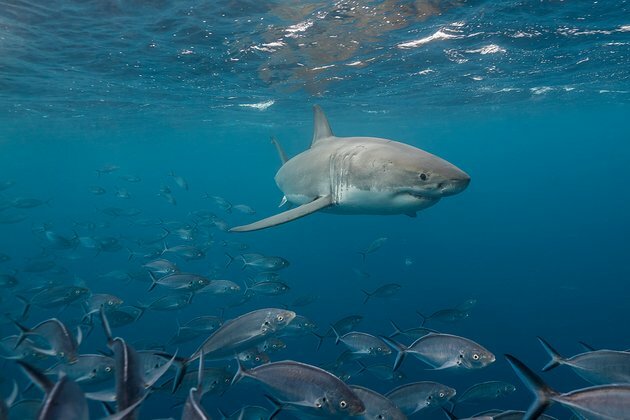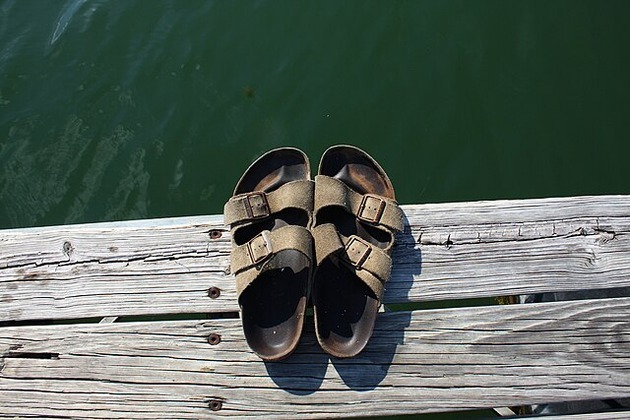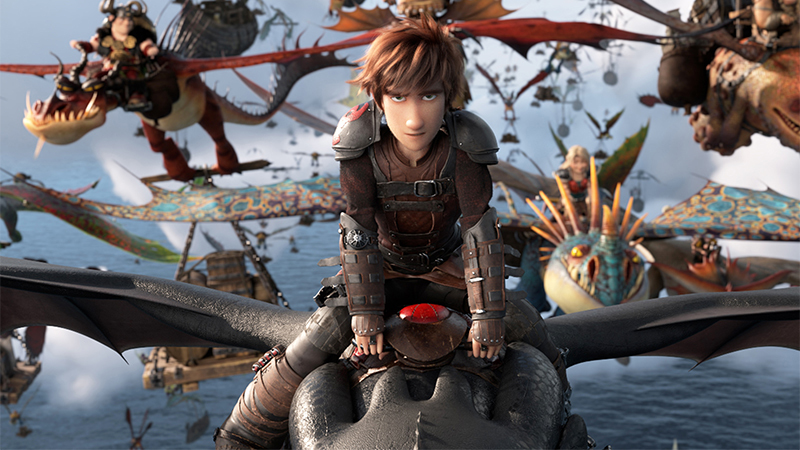Curious Kids: what is the apex predator of the world?
The Conversation
05 Aug 2022, 02:08 GMT+10

Hi Mahmood, thanks for this interesting question!
Well, what sorts of animals do you typically imagine when you think about apex predators? Great white sharks, polar bears, killer whales, crocodiles, African lions, anacondas ... perhaps a wedge-tailed eagle?
To determine what the apex predator of the world is, we first need to understand what types of "predators" there are, and what we mean by "apex".
Different types of predators
Contrary to popular belief, predators aren't just species with large sharp teeth or fangs, hooked beaks, or razor-sharp claws. A "predator" is any species that eats part of, or all of, another living species - or in some cases its own species (which is called "cannibalism").
Predators can be:
Carnivores
These animals eat the flesh of other animals. Cannibalism is a special form of carnivory, and is widespread across the animal world. It has been recorded in several hundred species, including spiders, insects, fish, birds, reptiles, amphibians and mammals (including humans).
Herbivores
These are animals that eat plants, but they're still considered predators. So yes, kangaroos are predators too, but they simply eat plants rather than animals. Although it appears this wasn't always the case in Australia - beware Balbaroo fangaroo!
Parasites
These are animals or other organisms that live on (ectoparasites) or in (endoparasites) another species. They feed on this "host" for nutrients. Ticks, leeches and hookworms are all examples of parasites.
Parasitoids
These are organisms whose young develop on or inside another host organism, feed on it, and end up killing the host as a result. The iconic movie Alien features such a scenario, albeit fictional (although you might want to wait a few years before watching it). This group includes species of wasps, flies, beetles and worms.
It all depends on the environment
Apex predators are often referred to as "top predators" because they sit at the top of their food chain and are typically considered to be dominant and without predators of their own.
It's important to note apex predators don't have to be particularly large. Although they often are, it's more about how their size compares with the species they interact with, and how they behave within their own ecological community.
Imagine a terrarium in your home with some plants and various insects, including a praying mantis; the praying mantis is most certainly the apex predator here.
Now imagine letting them all loose in a field somewhere. The praying mantis is now potentially on the menu for a spider, frog, bird, or other larger predator.
A predator that is below other predators in the "pecking order" can be referred to as a mesopredator. For example, wolves are often considered apex predators, and are known to compete with and even kill coyotes (mesopredators).
In areas without wolves, however, coyotes might ascend to the apex position. They are known to kill cats, which can indirectly benefit songbirds.
In Australia, dingoes are considered apex predators. They hunt and eat a wide range of animals including kangaroos, emus, feral goats and feral deer.
But dingoes, similar to many predators around the world, are frequently killed by humans.
Danger in numbers
Because our question is concerned with determining the world's main apex predator, we'll need to consider how widespread a species is.
There are some "apex" predators that are found throughout much of the world, including grey wolves, blue whales, killer whales and great white sharks.
In my mind, however, humans are clearly the overall apex predator of the world. We've even been called the super-predator!
Human impact spans the entire globe - from the land to sea, and the south pole to the north pole.
Compared to other predators, we use a much larger percentage of the world's food resources, as well as water and other natural materials. In doing so, we cause widespread environmental harm.
Humans are having a devastating effect on some other apex predator populations, threatening their chances of long-term survival.
For instance, although there are situations where large sharks have killed humans, it's estimated humans kill more than 100 million sharks per year. Many shark species are at risk of extinction as a result.
The good news is we can all make choices to help reduce our environmental footprints and help protect other species - predator or otherwise.
Read more: Curious kids: why don't whales have teeth like we do?
Author: Euan Ritchie - Professor in Wildlife Ecology and Conservation, Centre for Integrative Ecology, School of Life & Environmental Sciences, Deakin University 
 Share
Share
 Tweet
Tweet
 Share
Share
 Flip
Flip
 Email
Email
Watch latest videos
Subscribe and Follow
Get a daily dose of Sydney Sun news through our daily email, its complimentary and keeps you fully up to date with world and business news as well.
News RELEASES
Publish news of your business, community or sports group, personnel appointments, major event and more by submitting a news release to Sydney Sun.
More InformationBusiness
SectionBirkenstock steps up legal battle over fakes in India
NEW DELHI, India: Birkenstock is stepping up its efforts to protect its iconic sandals in India, as local legal representatives conducted...
Beijing hits back at EU with medical device import curbs
HONG KONG: China has fired back at the European Union in an escalating trade dispute by imposing new restrictions on medical device...
Wall Street reels after Trump invokes new tariffs
NEW YORK, New York - Monday's trading session saw mixed performances across U.S. and global markets, with several major indices posting...
Trump admin allows GE to restart engine sales to China’s COMAC
WASHINGTON, D.C.: The U.S. government has granted GE Aerospace permission to resume jet engine shipments to China's COMAC, a person...
Saudi Aramco plans asset sales to raise billions, say sources
DUBAI, U.A.E.: Saudi Aramco is exploring asset sales as part of a broader push to unlock capital, with gas-fired power plants among...
Russia among 4 systemic risk countries for Italian banks
MILAN, Italy: Italian regulators have flagged four non-EU countries—including Russia—as carrying systemic financial risk for domestic...
International
SectionTikTok building U.S.-only app amid pressure to finalise sale
CULVER CITY, California: TikTok is preparing to roll out a separate version of its app for U.S. users, as efforts to secure a sale...
Trump defends use of 'Shylock,' citing ignorance of slur
WASHINGTON, D.C.: President Donald Trump claimed he was unaware that the term shylock is regarded as antisemitic when he used it in...
Summer travel in chaos as French air traffic controllers walk off job
PARIS, France: A strike by French air traffic controllers demanding improved working conditions caused significant disruptions during...
Congress weighs Medicaid cuts, sparking alarm in small-town hospitals
OMAHA, Nebraska: With Congress considering cuts totaling around US$1 trillion to Medicaid over the next decade, concerns are rising...
Gas station blast injures 40 in Rome, kids narrowly escape
ROME, Italy: Quick thinking by emergency responders helped prevent greater devastation after a gas station explosion in southeastern...
Weapons pause by Trump signals shift away from foreign wars
WASHINGTON, D.C.: President Donald Trump is drawing praise from his core supporters after halting key arms shipments to Ukraine, a...













